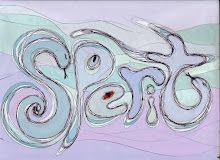I was there. In Guyana, at Carifesta X. I was there as one of four chosen Bahamian writers to represent Bahamian literary arts, only to arrive and discover that we Bahamians were still not on the official schedule to read or speak. We knew we were not represented before we left Nassau, and in spite of our letters to our own government and to the Carifesta X Committee, we never did make headway. Good thing we were prepared to go with the flow. Still, what is perplexing is why Bahamians were left out of the Carifesta schedule of literary arts in the first place. To be fair, several of the other northern Caribbean countries were missing from official literary arts events as well, including Jamaica. And when we showed up and asked to be included, we were met with hand waving and eyes averted; a strange disassociation which we were not sure of how to read.
Was our 'marginalization' intentional or an oversight? If either one, does it point to our lack of collective involvement in a larger Caribbean literary conversation? How do other Caribbean people see the Bahamas and its artists? As isolationist? As unwilling to speak as Caribbean people? I have heard rumours, of course. That Bahamians are 'flashy' and 'arrogant'. That we are too American. Not Caribbean enough. The questions and the rumours haunt me.
Still, we eventually negotiated three minutes for three of us to read at two of the evening readings, and encouraged by two of the Caribbean's most notable novelists, Austin Clark and Earl Lovelace, we also decided to organize our own reading, at Buddy's International, where we stayed for the two week event. And speaking for myself, being able to share my writing in Guyana, with other Caribbean writers and readers was a gift. Particularly because in that location, I became more accutely conscious of the Caribbean as my audience. And of my own need to be recognized and assessed by that audience, whose desires and experiences are part of the particular diversity that is the Caribbean, and of which the Bahamas is an inextricable part.
What I'm saying is this: that reading my work there gave me a glimpse of my extended family, and hearing the likes of Austin Clark, Earl Lovelace, and of course, Derek Walcott and others gave me a different kind of permission as a writer, one that I had not encountered before and needed in order to begin to fully inhabit my writer self: they gave me permission to see my self seriously as a writer with a long and dynamic tradition, connected by ocean and by spirit and by experience to literary forefathers and foremothers who have pioneered pathways and whose work compells me now to sit down and grapple with mine.
Perhaps being left out of officially sanctioned spaces is sometimes the critical jolt that remembers us to ourselves - reminds us that no government, and no festival can create art or artists, we create and define ourselves.
Subscribe to:
Post Comments (Atom)


.jpg)
2 comments:
Yes, yes, we will define ourselves, amen!
I'm proud - and not at all surprised - that you organized your reading on the fringe of the official schedule. It appears that you writers handled the exclusion with positivity, action and grace. Perhaps we are the ones thought "not meant to be there,' sort of like that Jamaican Olympic bobsled team years back. Your team could not, would not be deterred or derrailed, you were going to get your voices heard no matter what. You get the Great Spirit Award. Bravo. Thank you.
Bright blessings!
Thanks, Lynn... of course, we wish you had been with us, to share your Great Spirit with Guyayan and the Caribbean too... nevertheless, you continue to do your work, exactly where you are, regardless... plenty respect,
Helen
Post a Comment